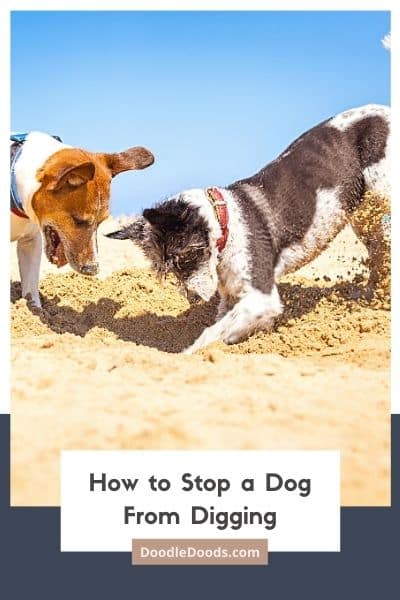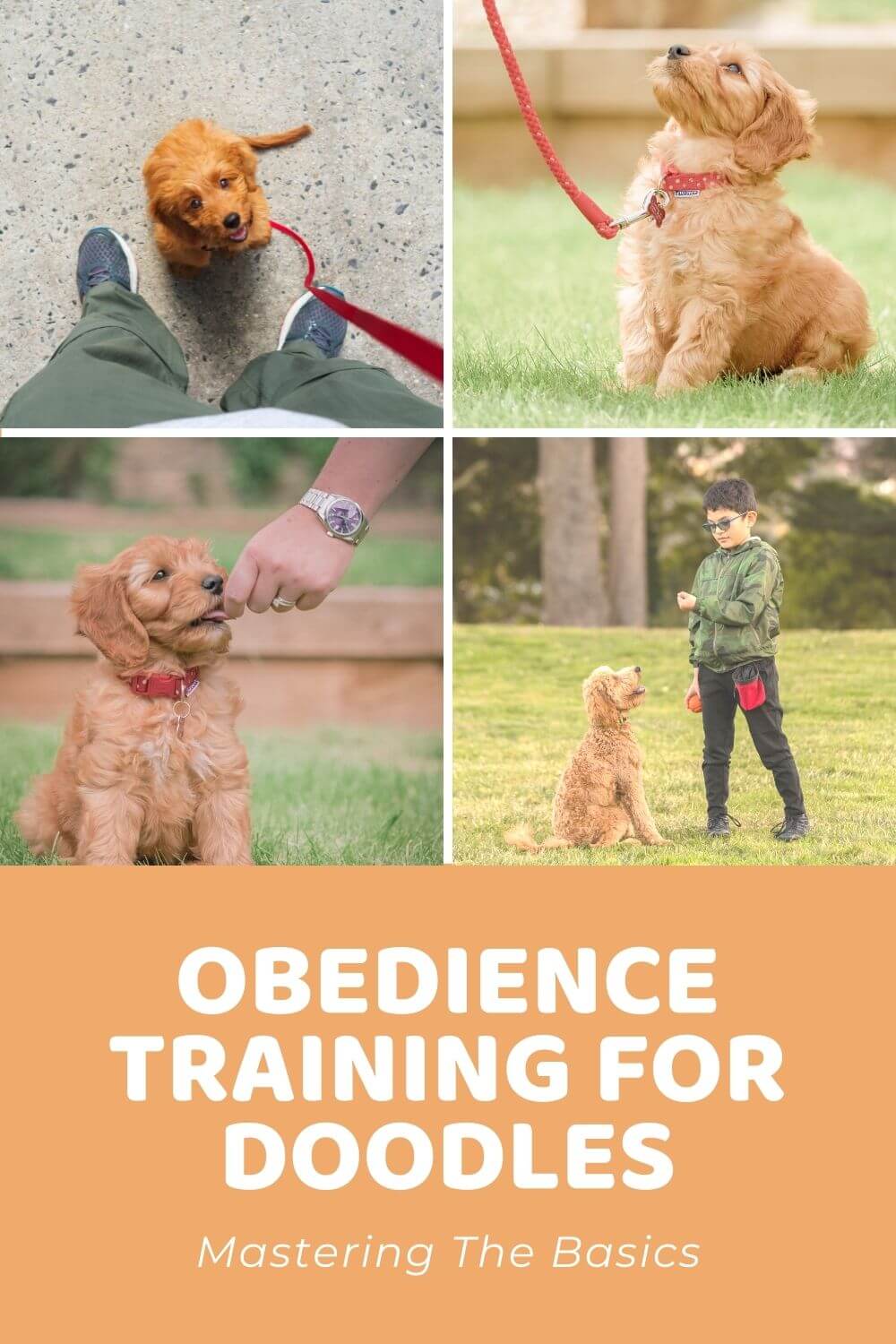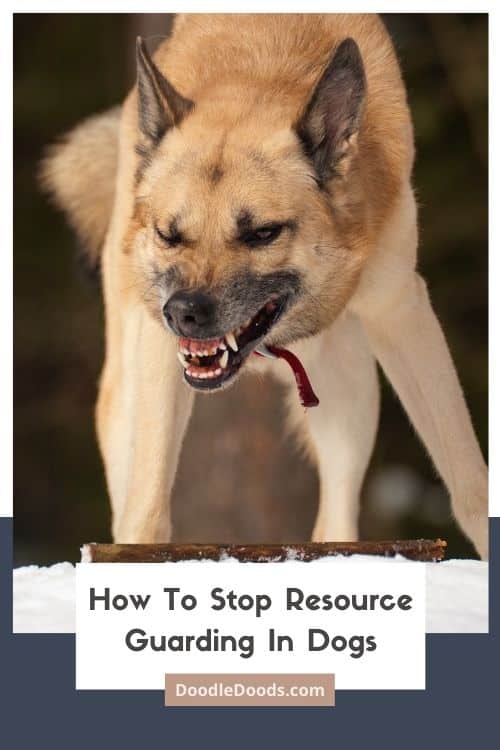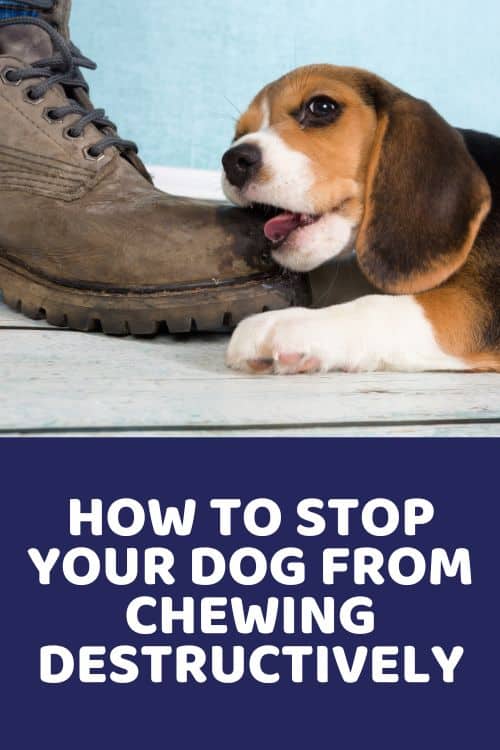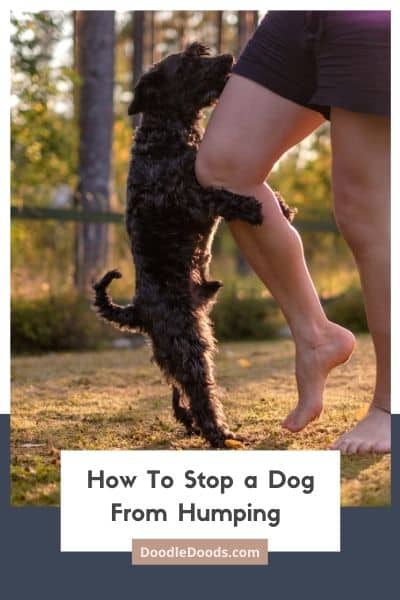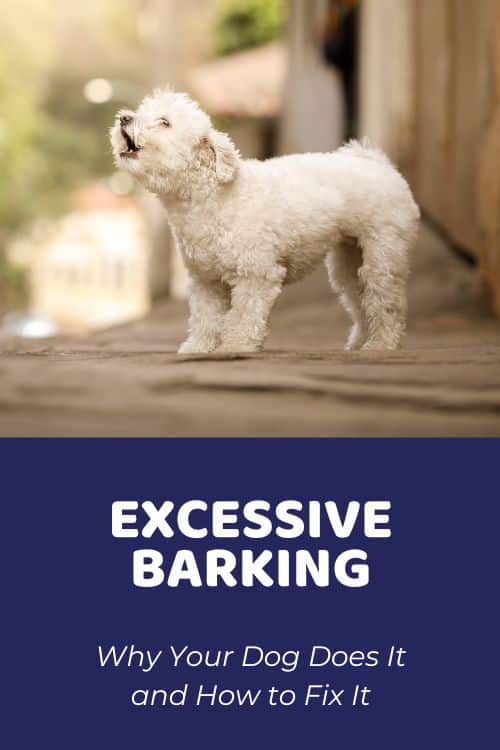Do you have a dog that likes to dig? If so, you’re not alone. Many dogs enjoy digging, whether it’s in the backyard or inside the house. While some people may find this behavior amusing, others find it frustrating and even destructive. In this blog post, we will explore why dogs dig and offer tips on how to stop a dog from digging. Let’s get into it!
Table of Contents
- Why Do Dogs Love To Dig?
- How To Stop A Dog From Digging: Should You Be Worried?
- How To Stop A Dog From Digging? Tips For Keeping Your Dog From Digging
- How To Stop A Dog From Digging? Final Thoughts
Why Do Dogs Love To Dig?
If you want to know how to stop a dog from digging, we must first discuss why dogs dig in the first place. The answer to this question is not straightforward.
It shouldn’t come as a surprise that digging is a natural behavior for dogs. Just like how cats love to scratch, dogs love to dig. Whether it’s in the dirt, sand or even inside your couch cushions, digging is an instinctive behavior for dogs. And even though some “appropriate” digging is perfectly fine for most dogs, there’s a line when it becomes destructive and needs to be corrected.
There are several reasons why a dog might be drawn to digging, some of the most common causes include:
- Exploration – If a dog is bored and curious, they may start digging in search of an interesting scent or object.
- Instinct – Dogs are scavengers by nature, so digging can be an instinctive way for them to hunt for prey or hide things away for safekeeping.
- Comfort – Digging can provide comfort from hot temperatures or be used as a way to make a warm, cozy shelter to hide from cold temperatures and rain.
- Prey Drive – Some breeds were bred specifically for hunting and burrowing, like Terriers and Dachshunds. This means that some dogs just have an urge to dig because it’s in their genes.
- Anxiety – If a dog is anxious or stressed, they may find comfort in the act of digging.
- Attention – Your dog may be excessively digging if you’ve previously rewarded this behavior with attention (and yes, even punishment counts as a reward!).
- Escape – Some dogs simply like to get out of their fenced backyard due to their curious nature, whereas others may instinctively try to escape from things that scare them, such as fireworks.
- Boredom – If a dog is bored and not stimulated enough, they may resort to destructive behaviors, such as excessive digging.
- Fun – For some dogs, however, it’s all about fun and games!
So, as we learned, there are various reasons why your dog may be digging excessively. Digging may be a sign of boredom, an attempt to escape or explore an area beyond the boundaries of their yard, stress relief, fun, or instinctive behavior. It could also be due to emotional triggers such as loneliness or anxiety. Whatever the reason for your pup’s digging habits, it’s important to understand how and why this behavior occurs so you can address it properly.
How To Stop A Dog From Digging: Should You Be Worried?
Although digging is a natural behavior for dogs, it can also be dangerous. Especially if your dog digs destructively and excessively.
For instance, if you don’t keep an eye on how far and how often your dog is digging, you may notice that your canine pal is nowhere to be found – they’ve dug themselves out of the yard! If your dog is constantly escaping their yard by digging under or through the fence, you should take action to correct this behavior. Not only is this annoying to go out and find your dog romping around the neighborhood, it can be extremely dangerous for them. Dogs can be hit by cars and trucks, get hopelessly lost due to loud noises and strange environments, or get hurt by malicious people.
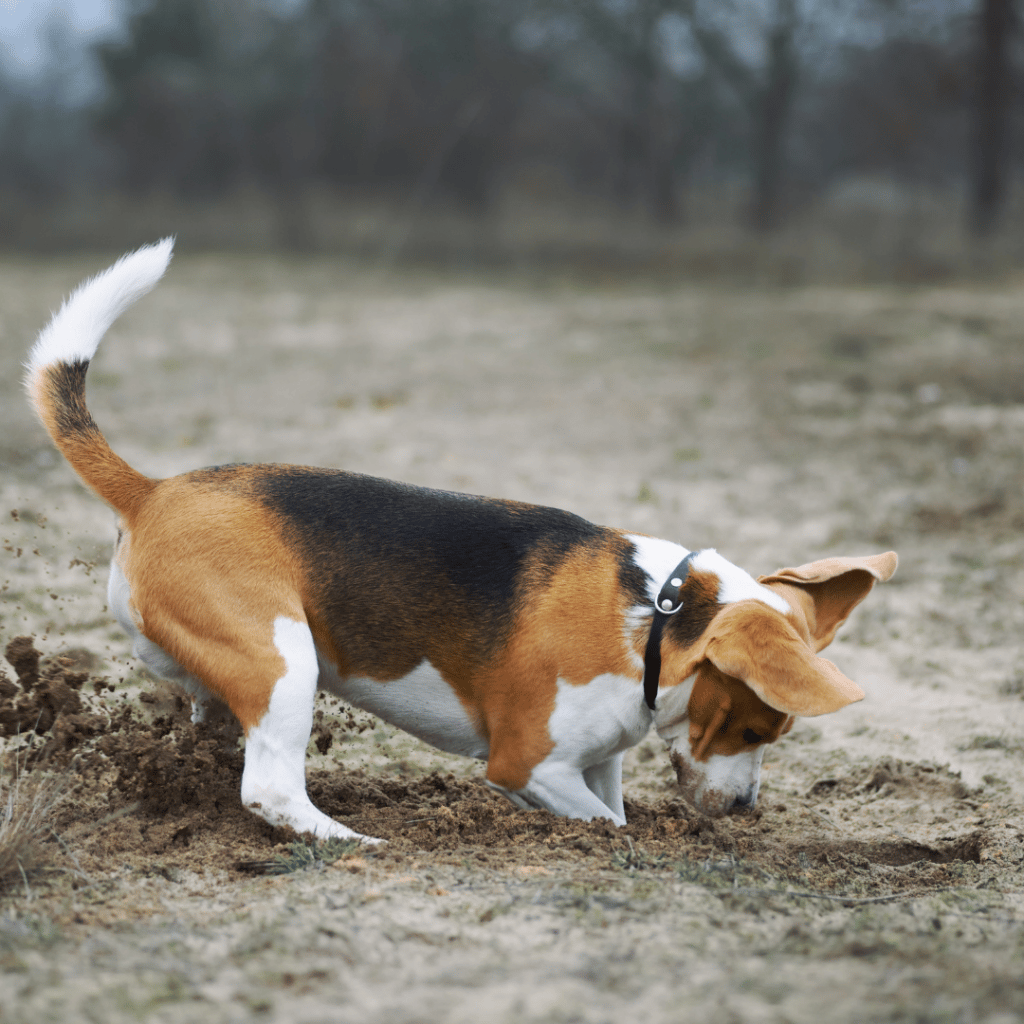
Additionally, if your pup digs deep enough and wide enough, they could potentially hit electrical wiring or other hazardous materials. They may also reach items that are unsuitable for eating, including rocks and even rodents. This is especially concerning if your dog also has a bad habit of eating everything they come across.
Moreover, excessive digging can cause physical injury to your dog’s paws and toe nails, especially if the ground they’re digging hides sharp edges, rocks, debris, or thorns. They may accidentally break a toe nail while compulsively digging, or dig their paws raw until bleeding. If you don’t notice these injuries early on, infections are quick to spread. Needless to say, this in turn can cause much more serious health issues.
How To Stop A Dog From Digging? Tips For Keeping Your Dog From Digging
So, how to stop a dog from digging? If you have a pet that is exhibiting this destructive behavior, there are some steps you can take to stop them from digging in your home and yard:
Tip 1) Exercise, Exercise, & More Exercise!
Dogs need a lot of exercise to prevent them from becoming bored and turning to digging as a way to entertain themselves. A tired dog is less likely to be interested in digging up the backyard!
Make sure your pup gets plenty of exercise, as this will help manage their energy levels and keep unwanted behaviors at bay. After all, if your dog doesn’t get to express all that pent up energy, they’ll have to channel it somewhere. And what a better way to get their bodies moving than with incessant digging around your precious garden.
Keep in mind that different breeds have different energy levels and activity requirements. For instance, herding and sporting dogs like Retrievers and Terriers need quite a lot of exercise each day to live healthy and happy lives. In contrast, brachycephalic, a.k.a flat-faced breeds like Pugs and Boxers can do well on moderate amounts of daily exercise.
Tip 2) Provide Mental Stimulation
Although physical exercise is vital, you should also keep in mind the importance of mental stimulation. Mental stimulation can be just as tiring for dogs as physical stimulation, but they should get a proportionate amount of both each day. This is especially important for highly intelligent breeds like Poodles or Border Collies.
For mental stimulation, give your dog plenty of puzzle games and toys that require problem-solving skills. This will also help keep their minds busy when they feel the urge to start digging. By the way, training is another form of providing mental stimulation for your dog, as they’ll need to put their intelligence to good use.
If you’d like to learn more about dog enrichment ideas and activities, this guide is a great place to start.
Tip 3) Address Boredom, Stress, & Anxiety
Just like humans, dogs can develop behavioral and emotional issues when they’re lacking something in their lives. In many cases, destructive behaviors like excessive digging are caused by either boredom, loneliness, stress, or anxiety.
For instance, breeds that are prone to separation anxiety may start to dig excessively whenever you leave the house. That’s why it’s vital you consider your dog’s emotional needs long before you adopt them. Only this way you can be sure that you’re able to provide them a healthy, safe, and nurturing home environment to thrive in.
Other signs of these emotional problems include pacing, excessive licking or chewing, or constant whining, crying, or barking. Once you’ve figured out what causes your dog to become anxious, you can start tackling the problem head on.
Many of these issues can be managed through physical and mental stimulation, such as providing plenty of toys and activities for your dog. This will help prevent boredom and discourage them from digging.
We’ve created a full guide on separation anxiety that has tons of helpful tips that you can implement. For more resources on this topic, be sure to check out these articles on stress and anxiety in dogs.
Tip 4) Create A Dog-Proof Yard
Needless to say, if you have a backyard where your pup can romp around, it should be properly fenced and secured. On top of that, you can take further steps to make it dog-proof. Set up boundaries or barriers in the area of your yard where they tend to dig, such as a fence or stakes. This will help keep them in check if they start to become destructive.
One excellent option is to bury chicken wire underground, so your pup can’t dig underneath the fence. Make sure to fill in any holes or crevices in the fence, and put up a fence that is too high for your dog to jump over. In fact, we’ve even created a guide on how to build a simple, yet effective chicken wire dog fence. This is also helpful if you’ve spent a lot of time and money on creating a beautiful backyard with lots of plants, especially if some of them are toxic for dogs.
You can also place pea gravel in certain areas to prevent injury from excessive digging. Other items you can utilize other physical barriers to prevent digging in certain areas, such as large rocks or concrete
In addition to all of the above, don’t forget to create a cool and comfy spot for your dog to hang out during warm summer months. If your dog is digging in the hopes to get away from the summer heat, having a safe haven outside in a shady area might do the trick. You can even place a dog cooling mat there!
Tip 5) Create A Designated Digging Zone
Sometimes the usual tips on how to stop a dog from digging simply aren’t enough. If you’ve got an avid digger whose genetics predispose them to this behavior, you can create a designated doggy digging zone in your backyard. This will help keep their destructive behavior contained to one area of your yard and encourage them to dig there instead.
Set up an area with plenty of soft dirt where it is okay for your pup to dig. This will help teach them where it’s acceptable to dig and how to do it properly. Fill this area with plenty of sand, dirt, or pea gravel. You can also bury toys in the digging zone as an incentive for your pup to use that spot. Make sure to reward your dog whenever they utilize their designated digging zone and discourage them from digging anywhere else!
Moreover, if your dog is especially keen on digging due to their breed, you can explore a sport called AKC Earthdog. This encourages dogs to utilize their natural skills and traits in a healthy way. Meanwhile, it’ll also provide them a mental and physical challenge. It’s a win-win!
Tip 6) Introduce A Training Regimen
If your dog is digging out of boredom or stress, consider introducing a training regimen that can help to address these issues. This may include obedience training, agility training, or simply teaching your pup how to “Leave It!” when they see something they want to dig up.
Of course, other forms of training are equally important, as they help teach your new puppy how to behave in an appropriate manner from an early age. Furthermore, early training is proven to build a puppy’s confidence and set them up for success. This includes early socialization, crate training, and potty training.
In fact, crate training is super helpful for anxious and stressed dogs that struggle with separation anxiety, or stress and anxiety in general. You could also try crate training your dog when you’re not able to supervise them. This will prevent them from digging while you’re away.
Tip 7) Redirect Your Dog’s Attention
Sometimes the answer to the question “how to stop a dog from digging?” lies in a very simple thing – you should redirect your dog’s attention! What’s more, frantic digging could also be down to the fact that your dog has nothing else to do in the backyard.
If your pup is still inclined to dig despite getting enough exercise and mental stimulation, try providing them with appropriate toys and puzzles that will keep them occupied. Place something in the backyard that will distract your pup from digging, such as a toy, tasty treat, or even a flirt pole.
You can also keep an eye on your pup’s behavior whenever you let them out to the garden. If it seems like they’re already eyeing a sweet spot for digging, give your pet attention and affection. Redirecting their attention may be enough to distract them from starting with the activity. Of course, it’s important that you only use this method *before* your dog starts digging. Otherwise you’re simply rewarding the behavior that you want to stop. Consequently, your dog will most likely continue digging in the future in hopes of getting your praise and affection.
Tip 8) Make The Area Unappealing
If you’re trying to stop a dog from digging in specific areas, make sure there are no objects or scents that could be attractive to them. You may also want to use strong smelling repellants like citrus or vinegar around these areas as a deterrent. This homemade anti-chew spray for dogs can also be helpful if your dog loves to dig. Use a deterrent spray right before your pup goes outside to play, as the smell tends to fade after a short while.
A lesser-known, but quite an effective option would be to cover your dog’s favorite digging spot with dog poop. Although it’s rather gross, we’ve seen this method work time and time again. On the other hand, this tends to only work as a short-term solution and your dog may soon find a new favorite digging spot if you don’t address the actual root cause of the problem.
Tip 9) Be Consistent
It’s important to be consistent with how you discipline any undesirable behavior from your pup, including digging. If you catch your pup in the act, be sure to redirect their attention away from the digging and provide an alternate activity for them. As a dog owner, it’s your responsibility to set a good example with consistent behavior. And by sending your dog mixed signals, you won’t get far.
Moreover, you should never scold or punish your dog for digging in places where they shouldn’t. This will signal your pooch that they’ll get your attention whenever they start digging, making them even more likely to continue with it. Regardless of that, punishment methods aren’t ethical or moral in any way, and we never condone such practices. They’re also extremely harmful for your dog’s emotional wellbeing, not to mention the bond you two share. The only way to properly discipline your dog is through consistent positive reinforcement training and by ignoring unwanted behaviors.
Tip 10) Consider Hiring A Professional Or Consult With Your Veterinarian
Although digging is a natural behavior for dogs, it can be discouraging when they start causing destruction in your home or yard. We hope that these tips above on how to stop a dog from digging will help make this behavior more manageable. However, if you are still having trouble with your pup’s digging habits, it may be worth consulting with a professional dog trainer who can offer additional advice and guidance.
You can also look into a service that lets you train your pup from the comfort of your own home, such as this Online Puppy School by Baxter & Bella. This program includes a wide range of resources that’ll help you prevent and manage unwanted behaviors. It’s also much more cost-effective than meeting with a professional dog trainer every week.
Additionally, sometimes it helps to consult with your veterinarian, as sudden destructive behaviors can also be caused by an underlying medical issue. Whenever you notice something’s off with your pup’s behavior, it’s time to take action. That’s why yearly vet checkups are important too – you’ll get to regularly keep a track of pup’s health.
How To Stop A Dog From Digging? Final Thoughts
Digging is a common behavior among dogs, but that doesn’t mean it has to be accepted as normal. By understanding why they dig and following the steps on how to stop a dog from digging above, you can minimize or even stop this destructive behavior in its tracks. Start by understanding why your pup is exhibiting this behavior and then work on providing plenty of exercise and toys for them. Set up boundaries in areas where they tend to dig and provide distractions when necessary to keep them from getting bored or anxious. With patience and consistency, your dog will learn how to stop digging and you’ll finally have a peaceful home. Good luck!

